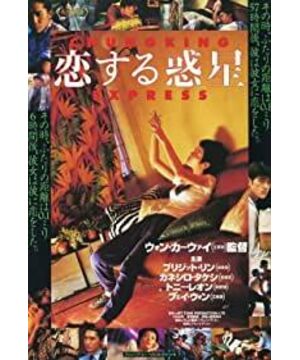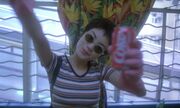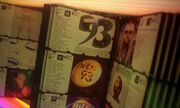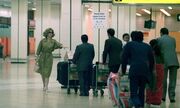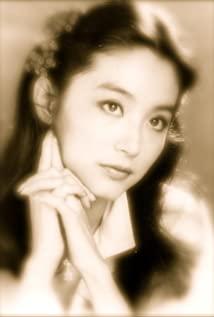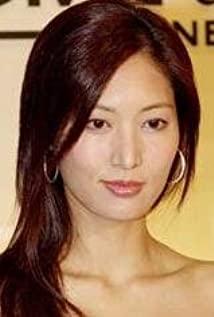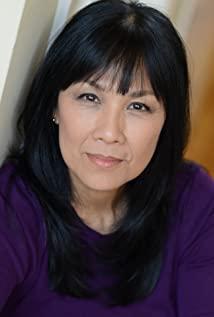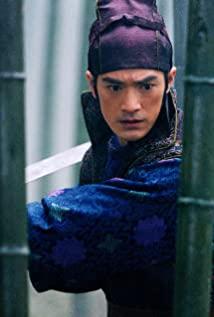1. Unspoken emotional portrayal
The lens used by Wong Kar-wai is like a scalpel. It cuts through the appearance of the character and shows the most profound things in the character's heart to everyone. The method is extremely cruel but very charming. In the film, when Brigitte Lin lost her drugs and looked for the Indians, she used a portable camera to follow her back, as if we were following her, but we were not accompanying her, because her footsteps were getting faster and faster. Not just the urgency to lose the drug, but more like escaping from something. Furthermore, the shaky images it created, the deliberately framed shots and the gradually accelerated switching rhythm made us and Brigitte Lin feel the anxiety and despair of losing the drug. As soon as the camera turns, Ah Wu, who has lost his love in the phone booth, is eagerly looking for a "new love" to fill the sadness and emptiness in his heart. When he called everyone, the director used a long shot to express his loneliness and desire to communicate when he was rejected by everyone. Nothing expresses Takeshi Kaneshiro's loneliness more than this long shot. At the end of the story, the two are separated in a blue tone of blue, A Wu chose to refuse and avoid, the camera gave two close-ups, the high heels left for Brigitte Lin to take off, and the pager that gave A Wu a happy birthday . The two are separated. In the next story, Faye Wong, who sneaked into the police's house to clean, was under a group of fast-cut shots, accompanied by cheerful and sunny California music, the little woman's mind was undoubtedly exposed, and all the audience felt her excitement and excitement. Delight. She was looking for everything about this mysterious man, who was extremely abnormal to her. She wants to get everything he has.
The description of mood in society
There are very few empty shots in "Chongqing Forest", but they are also extremely important. It directly and clearly expresses the mental state of Hong Kong youth and the social outlook of Hong Kong at that time. When Ah Wu left the hotel, he moved to the subjective shot outside the window with his lines. First, the city was covered with neon lights, representing the Hong Kong society full of materialistic desires. The next up shot is the blue sky full of melancholy, which belongs to Ah Wu's own spiritual world. Then, the camera turned indoors, and a panorama placed Ah Wu in the middle of the frame, and the blue backlight hit him, placing his silhouette in a blue ocean of sadness. In the end, he started to help Lin Qingxia take off her shoes, expressing helplessly that Ah Wu, who was afraid of being hurt again, rejected the "new love" he found. But this kind of expression also has something to criticize, that is, the lack of plot narration. This is important because ordinary viewers are extremely unfamiliar with such language shots. Although the monologue of the characters can slightly supplement the lack of narrative, too much monologue will also make the film lack tension as a whole. There are also a large number of such expressionist shots in the film, showing the wandering feeling of the little people at the bottom in Hong Kong society at that time. For example, the descriptions of the shots of the police residence No. 663 are almost all close-ups, and no panorama is given. In a set of reverse shots of No. 663 and his girlfriend, we learned that outside his window are the wandering people in the city. It implies that the protagonist is placed in the crowd every day, but never really knows the world. In general, the general loss of the emotional world of characters in that era was subtly hidden in the lens by Wang Sunglasses.
Whether deliberately or not, "Chongqing Forest" is a true portrayal of Hong Kong's youth society in the 1980s and 1990s. Compared with other films of the same period that reflect the characteristics of the Hong Kong era, Wong Kar-wai's strongest point is that the feeling he creates is very direct and not very obscure, so that it can better express the theme of the film, so that people can find it. common sense. But for Shunji Iwai, who has similar characteristics, Wong Kar-wai is a little lacking. Shunji Iwai has taken into account both the narrative and the creation of visual images. Perhaps Wong Kar-wai wants to emphasize the feeling of urban fragmentation too much. But these do not affect the experience this film brings to us. The most important thing is that the film not only won the unanimous praise of the audience at the time with its beautiful visual pictures, but also will continue to exude popularity in the future. , affecting generations of urban youth.
View more about Chungking Express reviews


